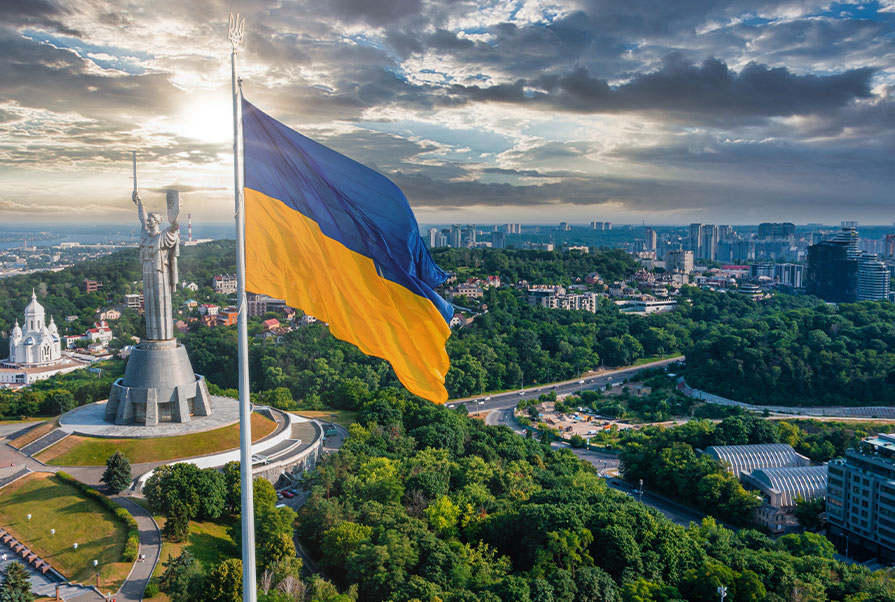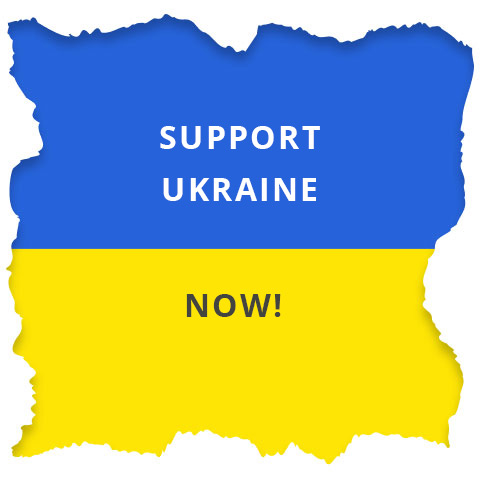Life has already become chaotic for Yuliia Yelahina before Russian troops invade Ukraine on February 24th. Her marriage has just unravelled; just a few days ago she received the divorce papers. She is also pregnant. She has given up her apartment in Sumy in Ukraine’s northeast. She’s now trying to sell the pole-dance studio that she was running and where she was training dancers. She wants to make Dnipro, the big city 400 kilometres to the south, the centre of her life. Her parents live there and she has moved back in with them.
She wants to restore some normality to her life. Four days before the first bombs are dropped, she is in charge of a group of young dancers at a contest in Kyiv. “All of them did really well”, she proudly remembers and shows pictures of the contest on her phone. She has reason to celebrate, too: she’s been honoured as the most successful trainer at the show. Then the war starts. Initially, she doesn’t really understand what’s going on. She has an appointment with a doctor for a check-up, but she doesn’t even go anymore. The whole family stays in the house. It’s the only place they feel safe. Leaving Sumy proves to be a stroke of luck. It’s one of the first regions to be occupied by Russian forces.
Dnipro is relatively far from the front line, but people are nervous here too because of air strikes. Everybody is on edge. Yuliia’s father urges her to flee the country. “Go to Germany”, he tells her, but she doesn’t want to. “This is still my home”, she asserts. There are fights among the family on a daily basis. Eventually, she gives in and decides: “I’ll go with my mother.” Her mother, though, is not going to leave without her husband.
Then she gets a call from friends who have fled to Poland. That is what makes her reconsider. The young woman gets onto a train for refugees to Lviv in Western Ukraine. She only takes a rucksack and a bag with some essential items: two pairs of jeans, T-shirts, pullovers, underwear, her laptop, and one of her sport outfits. She will have to make do with that. On the overcrowded train she meets a young woman who has taken nothing but the clothes she’s wearing, her documents, and her cat. “Compared to that my story is not tragic”, Yuliia decides when she tells her story.
On the train she even gets a sleeper berth. The refugees stay on the train for almost 24 hours. They have to take detours because of air raids. At one point the air-raid alarm sounds.
The train stops and all the lights are turned off.
Passengers even have to turn off their mobile phones. Complete darkness is supposed to protect them from an attack.
Fortunately, she has some contacts in Lviv. She spends the night at the apartment of a friend of her father’s. At four in the morning the sirens start wailing. The refugees are shocked: “I thought we were safe in Lviv, but there is nowhere safe in Ukraine anymore.” Some friends drive her to Poland, where she stays for a month. She’s dispirited. The divorce, being a refugee, and a lack of future perspectives are increasingly bearing on her.
At last, her father arranges contact through a friend to Andre Volke in Wolfenbüttel, Germany. This is where she shares an apartment with another woman. She’s looking forward to giving birth to her child.
Slowly she’s building a new life. She has even held two pole-dancing workshops in the area.
We organise accommodation, events and much more for refugees from Ukraine. Many families are in need of a new home. We provide a platform for Ukrainians to tell their stories.
We organise accommodation, events and much more for refugees from Ukraine. Many families are in need of a new home. We provide a platform for Ukrainians to tell their stories.

Our association for the correct receipt of donations is: Chancen Geben e.V. We are very committed to reconstruction in Ukraine.
Account holder:
ChancenGeben e.V.
IBAN
DE68 2709 2555 5871 9830 00
BIC
GENODEF1WFV
Intended use
Faces of Ukraine

Please note:
Monetary donations are tax deductible and up to € 300 the tax office does not require a donation receipt, but they may be supported by a transfer voucher/account statement.
We can issue a donation receipt for donations of €300 or more.
To do this, please send us a separate email with the subject “Request for a donation receipt” to: kontakt@chancengeben.org. Please include your first and last name, address, donation date and amount donated, as well as a screenshot of the transfer.
The association pursues exclusively and directly charitable purposes within the meaning of the “Tax-privileged purposes” section of the tax regulations.
Henning Kramer
Am Lecheln Holze 9
38302 Wolfenbüttel
Phone: +49 5331 703 35 95
Email: kontakt@gesichter-der-ukraine.de